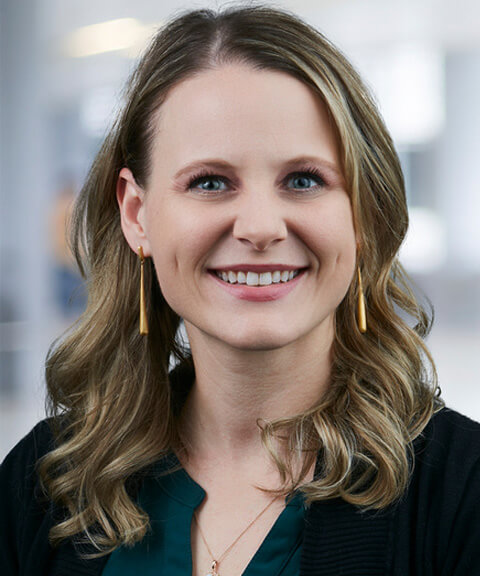Free naloxone and training offered to Texas colleges, community colleges and trade schools this fall
Contact: Steven Lee, 210-450-3823, lees22@uthscsa.edu
SAN ANTONIO, Sept. 16, 2025 — Naloxone Texas, a program of the Be Well Institute on Substance Use and Related Disorders at the University of Texas at San Antonio Health Science Center, is launching a new initiative this fall aimed at colleges and universities across Texas to distribute free naloxone and provide overdose response training to students, faculty and staff.
The effort targets public and private universities, community colleges and trade schools in response to the growing opioid crisis affecting young adults in the state. Naloxone, known commercially as Narcan, is a medication that can rapidly reverse an opioid overdose and save lives when administered quickly. Much like defibrillators or epinephrine auto-injectors (EpiPens), naloxone is a simple but powerful tool that can help bystanders respond in emergency situations before medical professionals arrive.

“Naloxone is more than a medication. It’s a tool that empowers students, friends and communities to save lives,” said Tara E. Karns-Wright, PhD, MS, director of Naloxone Texas and assistant professor in the Department of Psychiatry and Behavioral Sciences at the Health Science Center. “At Naloxone Texas, we believe every college campus should be equipped with the knowledge and resources to respond to an opioid overdose. Thanks to the generous support of our funders at the Texas Health and Human Services Commission and the Texas Legislature, we’re making this life-saving medication more accessible and helping everyone become first responders in moments that matter most.”
Naloxone Texas will also participate in several back-to-school events at community colleges across the state this fall, including campuses in Austin, Houston and San Antonio. At these events, students and staff will have the opportunity to sign up for free naloxone kits, learn how to use them and ask questions about overdose prevention and treatment resources.
Event dates, locations, fact sheets, logos, b-roll and Spanish collateral can be found at this Dropbox link.
College administrators, student health services and campus organizations are encouraged to request free naloxone kits and schedule training sessions by visiting www.naloxonetexas.com. Tailored training programs and bulk naloxone orders are available.
Through funding from the Texas Health and Human Services Commission and support from the Texas Legislature, Naloxone Texas offers access to overdose reversal medication and pathways to next steps. Services include:
- Free naloxone distribution: Available to both organizations and individuals, with a focus on areas at high risk for overdose based on county-level data
- Evidence-based training: On-demand, virtual modules that teach participants how to recognize and respond to an opioid overdose
- Referrals to adolescent and adult treatment and recovery support services through the Be Well Clinic and the Be Well Texas Provider Network, both of which offer virtual and in-person care for substance use
UT Health San Antonio is the clinical care, clinical research and health system enterprise of The University of Texas at San Antonio (UT San Antonio), offering a comprehensive network of inpatient and outpatient care facilities staffed by medical, dental, nursing and allied health professionals who conduct more than 2.5 million patient visits each year. The UT San Antonio Health Science Center is the region’s only academic health center and one of the nation’s leading health sciences institutions. Its schools of medicine, nursing, dentistry, health professions, graduate biomedical sciences and public health are leading change and advancing fields throughout South Texas and the world. To learn about the many ways “We make lives better®,” visit UTHealthSA.org.
About the Be Well Institute on Substance Use and Related Disorders
The Be Well Institute on Substance Use and Related Disorders at UT San Antonio and its patient-care enterprise, UT Health San Antonio, is a statewide leader in advancing research, clinical care and education to address substance use and its impact on individuals, families, and communities. The Institute encompasses a range of initiatives, including the Be Well Clinic (offering in-person and telehealth services), the Be Well Texas Provider Network (connecting individuals to treatment and recovery support across the state, Naloxone Texas (offering free statewide distribution of opioid overdose medication), the Center for Substance Use Training and Telementoring, and a robust research arm dedicated to developing and scaling evidence-based solutions. Together, the Institute’s programs expand access, reduce stigma, and improve outcomes for Texans affected by substance use and related disorders.
About Naloxone Texas
Naloxone Texas, an initiative of the Be Well Institute on Substance Use and Related Disorders at UT San Antonio and its patient-care enterprise, UT Health San Antonio, is a statewide program working to end opioid overdose in Texas through free naloxone distribution, overdose response education, and community engagement. In partnership with state agencies and local organizations, Naloxone Texas ships life-saving medication directly to individuals, providers, and communities, focusing on high-risk areas across the state. The program also offers accessible, evidence-based training on opioid overdose recognition and response, and connects individuals to treatment and recovery support through the Be Well Clinic and statewide Be Well Texas Provider Network. Learn more at NaloxoneTexas.com.
Stay connected on Facebook, Instagram, and LinkedIn.
Support for this program includes:
Texas Overdose Data to Action (TODA), a program of the Department of State Health Services (DSHS) under award number HHS001621600001; Texas Targeted Opioid Response, a public health initiative operated by the Texas Health and Human Services Commission, through federal funding from the Substance Abuse and Mental Health Services Administration under grant award number H79TI085747; and the 88th General Appropriations Act Texas, under House Bill 1.


